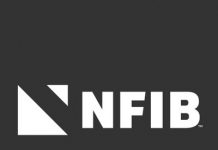Iowans should look out for price gouging and other scams related to the COVID-19 virus, Iowa Attorney General Tom Miller warns.
Gov. Kim Reynolds declared a state of disaster emergency for the entire state on Monday. A disaster declaration triggers the state’s price-gouging rule.
Price gouging is defined in the Attorney General’s Administrative Rule as raising prices unreasonably above the price at which the merchandise or service was sold in the usual course of business immediately prior to the onset of the emergency. The rule, which applies during the emergency declaration and “subsequent recovery period” up to six months, recognizes that prices may be higher because sellers also often incur increased costs.
“Price gouging is substantially raising prices for needed goods or services,” Miller said. “This is illegal and is something our office will pursue.”
The Attorney General’s office has been in contact with Amazon, where high prices for hand sanitizer, protective masks and other products have been reported. Amazon says it has removed several products and high-priced offers and suspended the accounts of third-party sellers who have engaged in price gouging.
The Attorney General’s Office also advises consumers to be wary of scammers who prey upon fear over coronavirus in other ways. Watch out for the following:
Bogus treatments: Deceptive or scientifically unsupported claims flourish during health scares. The Federal Trade Commission and U.S. Food and Drug Administration have sent warning letters to seven companies allegedly selling unapproved products — including teas, essential oils, and colloidal silver — claiming to treat or prevent coronavirus.
The agencies sent the letters to the following companies: 1) Vital Silver, 2) Quinessence Aromatherapy Ltd., 3) N-ergetics, 4) GuruNanda, LLC, 5) Vivify Holistic Clinic, 6) Herbal Amy LLC, and 7) The Jim Bakker Show.
The FDA says there are no approved vaccines, drugs, or investigational products available to treat or prevent the virus.
Phishing scams: Beware of emails that claim to be from the Centers for Disease Control and Prevention, the World Health Organization or experts saying that they have information about the coronavirus. Go directly to those organization’s websites for information. In general, do not click on any links from unknown sources, which could lead to downloading a computer virus.
Charity scams: Research any organizations or charities purporting to be raising funds for victims of the coronavirus by checking with groups such as BBB Wise Giving Alliance, Charity Navigator, Charity Watch, and Guidestar.
Investment fraud: The U.S. Securities and Exchange Commission has issued an alert warning investors to watch out for online promotions claiming the products or services of certain publicly traded companies can prevent, detect, or cure the disease and that the stock of these companies will soar as a result.
To seek help
Consumers should contact the Consumer Protection Division if they have consumer complaints about price gouging:
Web: www.iowaattorneygeneral.gov
Phone: 515-281-5926 (toll-free number outside of the Des Moines area: 888-777-4590)
Email: [email protected]
For up-to-date information on COVID-19, see the CDC and the Iowa Department of Public Health websites.












